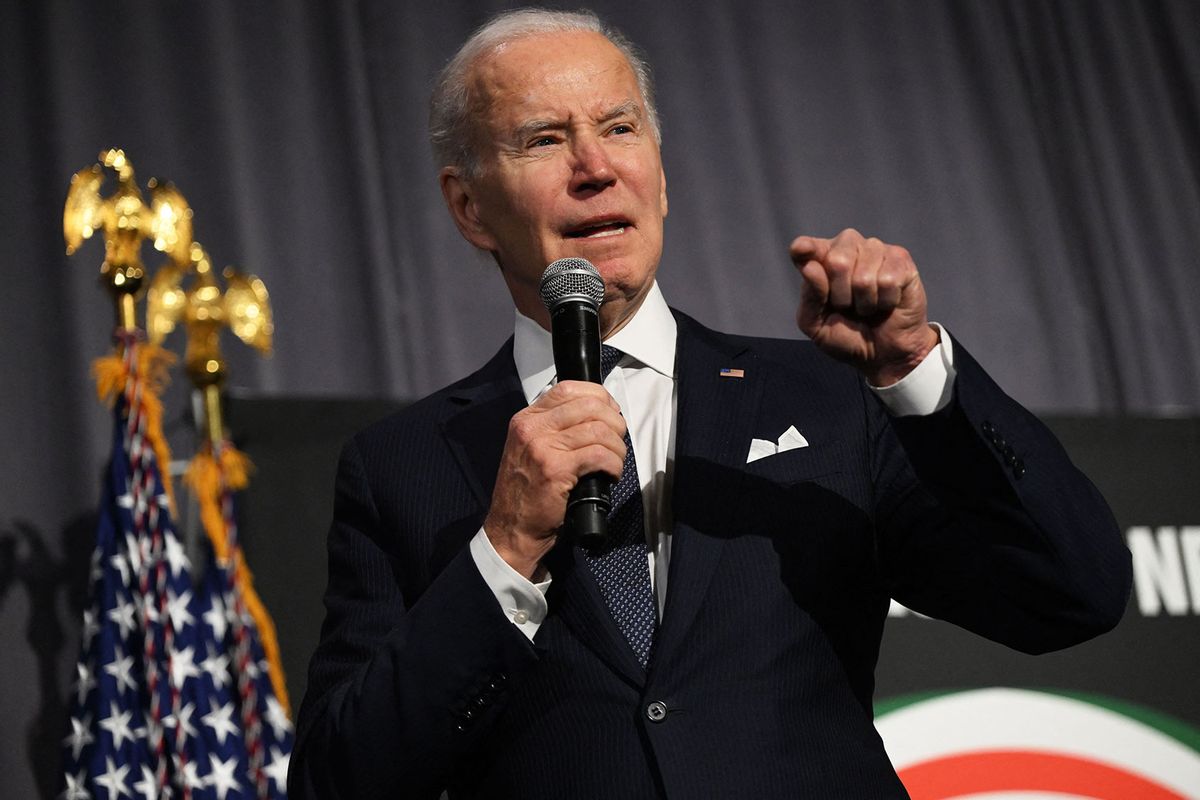The White House is in serious damage control mode while a growing number of prominent Democrats distance themselves from Joe Biden. "The emergence of another batch of classified material now has his own party upset at him," Bloomberg reported as this week began. "Rather than close ranks, Democratic allies responded with exasperation and growing concern to news over the weekend that FBI agents had recovered more secret documents from Biden's home in Delaware." On Monday night, in a story quoting three Democratic senators, The Hill informed readers that "Democrats are expressing alarm over President Biden's classified documents controversy, with some criticizing the president as diminished in stature and his staff as irresponsible."
Donald Trump's obstructive refusal to cooperate with the federal investigation into the far more numerous classified documents in his possession stands in sharp contrast with Biden's apparently full cooperation with the Justice Department. Yet Biden now faces a documents scandal that's sure to fester for a while — the average length of special counsel investigations has been upwards of 900 days — and the impact on his plans to seek re-election is unclear.
Meanwhile, here's an assumption so routine that it passes as self-evident among power brokers and corporate media journalists: Democratic voters are presumed to be mere spectators awaiting Biden's decision on whether to seek a second term. Hidden in plain sight is a logical question that remains virtually off limits in standard political discourse: Why not ask them?
What a concept. Biden could actually seek guidance from the Democratic base — the people who regularly turn out to vote for the party's candidates, give millions of small-dollar donations and do priceless volunteer work in support of campaigns to defeat Republicans.
Biden's decision on whether to run again next year must be understood as much more than just a matter of personal prerogative. Rather than treating it as such, Biden could put party and country first by recognizing that the essential Democratic task of defeating the Republican ticket in 2024 will require widespread enthusiasm from grassroots Democrats. Biden would clearly be boosting the chances of beating the GOP by including those Democrats in the decision-making process as he weighs whether to officially declare his candidacy.
But there's one overarching reason why the Biden White House has no interest in any such idea. The president doesn't want to ask loyal Democratic voters about his political future because he probably wouldn't like the answer. His stance is clear: It's my party and I'll run if I want to.
A glimmer of that attitude showed through during a news conference shortly after the midterm election. Noting that "two-thirds of Americans in exit polls say that they don't think you should run for re-election," a reporter asked: "What is your message to them?" Biden's reply: "Watch me." Later, CNN and CNBC polls found that nearly 60 percent of Democrats didn't want Biden to run again. Yet from all indications, he still intends to do just that.
Want a daily wrap-up of all the news and commentary Salon has to offer? Subscribe to our morning newsletter, Crash Course.
Defying the wishes of most of the party's voters could be spun as leadership, but a more fitting word is hubris. Whatever the characterization, it runs a serious risk of self-defeat. For instance, it's wishful thinking to believe that the Democratic presidential nominee can win without a strong turnout from those who represent the party's bedrock base and its future — younger voters.
There's one overarching reason why Joe Biden doesn't want to ask loyal Democratic voters whether he should run in 2024: He might not like the answer.
Biden's "watch me" attitude is especially out of whack when it comes to that critical demographic. A New York Times poll last summer found that a stunning 94 percent of Democratic voters under age 30 said they didn't want Biden to be the party's nominee. Such a disconnect spells trouble if Biden does run. Too many young people might respond to the "watch me" attitude by declining to volunteer or even vote for Biden, and watching him go down to defeat.
In normal times, a sitting president's renomination by his own party has been his for the taking. But in this case, when most of the party's supporters don't want the incumbent to run again, wielding raw intra-party leverage to get Biden nominated would indicate a high degree of political narcissism. It's not a good look, or an auspicious path toward the general election.
If he runs in 2024, Joe Biden would be the foremost symbol of the status quo — not a good position to be in when faux populism will predictably be the name of the Republican game. In a poll last November, only 21 percent of registered voters told Hart Research that the country was "headed in the right direction," while 72 percent said it was "off on the wrong track."
For the president, winning the Democratic nomination next year would likely be much easier than winning the White House for a second time. If Biden is content to become the party's nominee again, while ignoring the majority of Democrats who don't want him to run, he'll be boosting the chances that Donald Trump, or some other Republican, will be in the Oval Office two years from now. To prevent that catastrophe, grassroots Democrats will need to directly challenge the party elites who seem willing to whistle past the probable graveyard of Biden's second-term hopes.



Shares